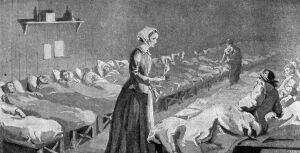History of Nursing
Nursing, a profession deeply rooted in the history of caregiving and healing, has evolved over centuries to become a vital component of modern healthcare systems worldwide. From its humble origins in early healing practices to the structured education and specialized roles seen today, the history of nursing is a rich tapestry woven with stories of compassion, innovation, and resilience. This article delves into the fascinating journey of nursing, exploring its development in ancient civilizations, the pivotal role of pioneering figures, and the ever-changing landscape of nursing education and practice. Join us on a historical exploration of the noble profession of nursing and discover the enduring legacy of those who have dedicated their lives to caring for others.
The Origins of Nursing
Early Healing Practices
In the beginning, before lab coats and stethoscopes, nursing was all about natural remedies and soothing rituals. Back then, a hug might have been the best prescription.
Role of Caregivers in Ancient Societies
In ancient times, caregivers were revered for their ability to heal with herbs, prayers, and a kind touch. They were the original superheroes without capes.
Nursing in Ancient Civilizations
Nursing in Ancient Egypt
The ancient Egyptians were pioneers in healthcare, with skilled nurses who could bandage wounds, mix potions, and maybe even walk like an Egyptian to lift spirits.
Nursing in Ancient Greece
In the land of philosophers and toga parties, nursing was an art form. Greek nurses not only tended to the body but also nurtured the soul with wisdom and compassion.
Nursing in the Roman Empire
In Rome, where aqueducts flowed and gladiators roamed, nurses were the unsung heroes behind the scenes, patching up soldiers, citizens, and maybe even a Caesar or two.
Nursing in the Middle Ages
Religious Orders and Nursing
During the Middle Ages, monasteries and convents became hubs of healthcare, with nuns and monks donning their habits to provide comfort and healing to the sick and suffering.
The Plague and Nursing
When the Black Death swept through Europe like an unwelcome houseguest, nurses were on the front lines, caring for the afflicted with courage, compassion, and hopefully some strong-smelling herbs.
The Emergence of Modern Nursing
Florence Nightingale and the Crimean War
Enter Florence Nightingale, the original boss nurse who revolutionized healthcare during the Crimean War. With her lamp in hand, she brightened the darkest of hospital wards and set the standard for modern nursing care.
Impact of Industrialization on Nursing
As the world industrialized, so did nursing. With advancements in medicine, technology, and hygiene, nurses became more than just caregivers; they became vital members of the healthcare team, juggling stethoscopes and EMRs like pros.# Pioneers of Nursing
Mary Seacole: The Forgotten Nurse
Mary Seacole, often overshadowed by Florence Nightingale, was a trailblazing nurse known for her work during the Crimean War. Despite facing discrimination, Seacole’s courage and compassion transcended boundaries, making her a remarkable figure in nursing history.
Clara Barton and the Red Cross
Clara Barton, the founder of the American Red Cross, revolutionized nursing during times of crisis. Her tireless efforts to provide aid and support to those in need have left an enduring legacy in the field of healthcare.
Nursing during Wars and Epidemics
Nursing in World War I
During World War I, nurses played a vital role in providing care to soldiers amidst the chaos of the battlefield. Their selflessness and dedication helped save countless lives and set a new standard for nursing in times of conflict.
Nursing during the Spanish Flu
The Spanish Flu pandemic of 1918 highlighted the essential role of nurses in combating infectious diseases. Despite facing overwhelming challenges, nurses showed resilience and unwavering commitment to caring for the sick and vulnerable.
Evolution of Nursing Education
Formation of Nursing Schools
The establishment of nursing schools in the late 19th century marked a significant milestone in the professionalization of nursing. These institutions provided structured training and education, setting the foundation for modern nursing practice.
Standardization of Nursing Curricula
The standardization of nursing curricula in the 20th century ensured consistent and high-quality education for aspiring nurses. By adopting evidence-based practices and accreditation standards, nursing education evolved to meet the changing healthcare landscape.
Contemporary Trends in Nursing
Specialization in Nursing
In today’s healthcare environment, nurses have the opportunity to specialize in diverse areas such as pediatrics, oncology, and critical care. Specialization allows nurses to deepen their expertise and deliver specialized care to specific patient populations.
Impact of Technology on Nursing Practice
Advancements in technology have transformed the way nurses deliver care, from electronic health records to telemedicine. Embracing innovative technologies has enhanced efficiency, communication, and patient outcomes, shaping the future of nursing practice.As we reflect on the profound history of nursing, one thing remains clear: the unwavering dedication and selfless commitment of nurses have been instrumental in shaping the way we perceive healthcare and healing. From the ancient practices of caregivers to the cutting-edge technologies of modern nursing, the profession continues to evolve and adapt to meet the ever-changing needs of society. As we look towards the future, let us honor the past and present contributions of nurses worldwide, recognizing their invaluable role in promoting health, comfort, and compassion for all.
Frequently Asked Questions
1. How has the role of nurses evolved over time?
2. Who are some notable figures in the history of nursing?
3. What impact did major historical events, such as wars and pandemics, have on nursing practices?
4. How has nursing education transformed from ancient times to the present day?









